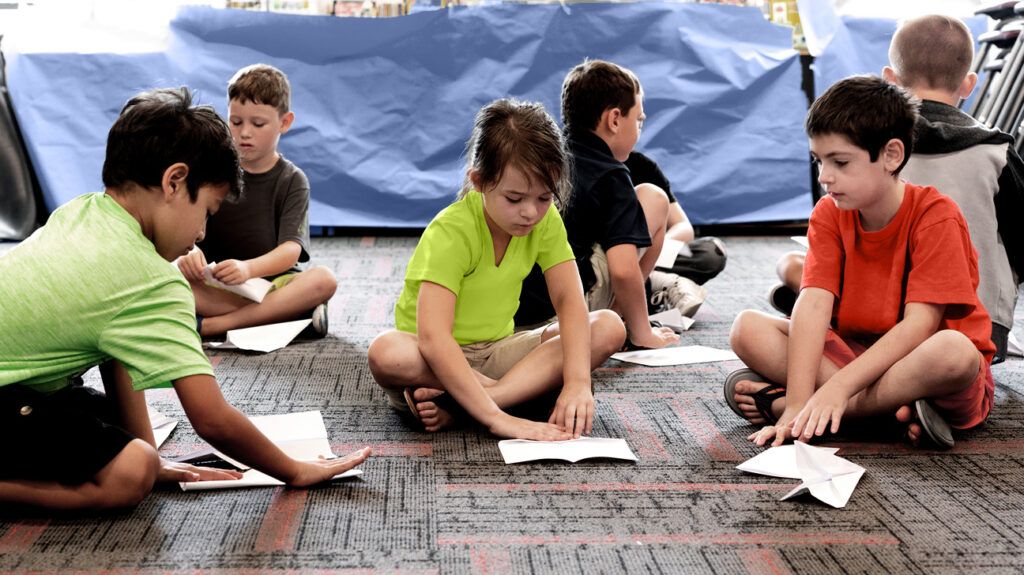obsessional - compulsive disorder ( OCD ) can affect children and adult . obsessional opinion are difficult to spot , but compulsive behaviors are normally more obvious .
OCD often develops between the ages of6 and 9 years . child with OCD have intrusive thoughts or fixation that cause them intense anxiousness . To remedy their anxiety , they perform actions or compulsion that are not always visible to others .
Young children do not always realize their thoughts are unrealistic or exaggerated and may not tie in their thought to their determined conduct .

This article discussesobsessions and compulsionsin childhood OCD , how the status can pretend daily life , and how parents and caregivers can support children with OCD .
What are obsessions and compulsions in childhood OCD?
OCD has two independent elements : obsessive thought and compulsive behaviors .
What are obsessive thoughts in childhood OCD?
It iscommonfor children to have unpleasant sentiment , but most can brush them off without feeling compel to do something about them .
For children with OCD , intrusive thoughts pass on a regular basis and take up a lot of mental energy , interfering with their ability to focus on other things . These idea also get extreme anxiousness .
Unless a minor talks about their obsessive thoughts , it is difficult for adult to know they are have them .
According to theChild Mind Institute , common obsessive thoughts come into several class that include :
What are compulsions in childhood OCD?
compulsion are well-situated to spot than obsessive thoughts , but not always . tiddler with OCD do determined behaviors to exempt the anxiety due to their obsessive thought . A child might do something physically or invalidate doing it . They may also perform a mental ritual , such as depend or reciting a phrase over and over .
Although obsession are often seeable , many adult do not understand that they stem from obsessional thoughts .
Examples of compulsive behavior in minor include :
Caregivers may notice these compulsive behaviors or their consequences , such as having raw , chapped paw due to excessive handwashing .
interpret about thelink between OCD and anxiety .
How does OCD affect a child’s daily life?
The obsessions and compulsions of OCD can get in the style of a child ’s daily life . This cannegativelyaffect their performance at school , their friendships and other relationships , and their emotional well - being .
tyke may palpate ashamed or embarrassed about their OCD . They may ward off verbalize openly about it because they interest mass will think they are leftover .
At school , children with OCD might do the chase :
Can OCD symptoms in children be confused with other conditions?
While children with OCD are at school , adults may mistake their behavior for other circumstance .
Children are often distracted by their fixation and compulsions , preventing them from paying attention in socio-economic class and focusing on their school work . Adults may misconceive this as tending shortage hyperactivity disorder ( ADHD ) .
grownup may also assume a child has ananxiety disorderwhen they worry about not doing their piece of work perfectly or find it difficult to change between tasks .
Adults may comprehend a child ’s behavior as oppositional if they do not follow their teacher ’ pedagogy . The tike may be torn between following instructions and performing the obsession they think will exempt their anxiousness .
Children with OCD have ahigher riskof experiencing othermental wellness conditions , such as depression , eating disorders , and terror disorderliness .
Mental health resources
Visitour consecrated hubfor more inquiry - backed information and resources on mental wellness and well - being .
How can caregivers support a child with OCD?
It is authoritative for tyke to be able to express how they feel without fear of negative consequences or experience silly . adult must listen to the child and take what they say earnestly . However unrealistic a baby ’s thought and compulsions are , they are very real to them , and openly discussing them canhelpcaregivers understand the issue and support the child .
Caregivers can take a nipper ’s primary Dr. and school to patronage a referral to a mental health professional for diagnosing and treatment . Treatmentoftenincludescognitive behavioral therapyand medication , such as selective serotonin re-uptake inhibitor ( SSRIs ) — a type ofantidepressant .
genial health professional can work with families and the child to notice ways of supporting the child and better their daily performance .
translate abouttypes of psychotherapy for OCD .
Summary
Some symptoms of obsessional - driven disorderliness ( OCD ) in kid , such as obsessive thoughts , may not be obvious . Compulsive behaviors are sometimes more noticeable , but adult may not greet them as signs of OCD .
OCD can do extreme anxiety in children and affect their societal functioning , their success at school , and their emotional well - being .
It is important that children experience safe to talk openly about their concern , which is the first step toward receiving treatment and backing .